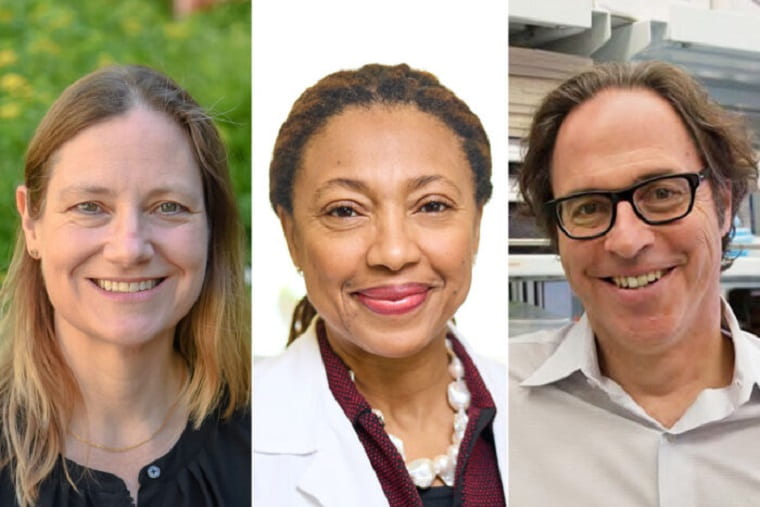Three physician-scientists at Washington University School of Medicine in St. Louis have been newly elected to the Association of American Physicians. Membership in the organization is an honor bestowed on physicians who lead innovative scientific research to improve health care.
They are Patricia I. Dickson, MD, Dineo Khabele, MD, and Gregory D. Longmore, MD.
Dickson, the Centennial Professor of Pediatrics and director of the Division of Genetics & Genomic Medicine in the Department of Pediatrics, was recognized for her contributions to the field of clinical genetics and medical biochemical genetics. Her research focuses on lysosomal storage diseases, which include 50 genetic diseases that individually are rare but collectively are prevalent. These metabolic disorders can affect various parts of the body, including the brain, heart, skeleton and central nervous system. Dickson’s research aims to understand the root cause of cell death in such diseases affecting children who appear healthy until they reach toddlerhood and start to regress in developmental milestones.
Khabele, the Mitchell & Elaine Yanow Professor and head of the Department of Obstetrics & Gynecology, is highly regarded for treating women diagnosed with ovarian and other gynecologic cancers. Additionally, she is known for her skills as a physician-scientist, as an inspiring leader, and for her passion for improving women’s health. Khabele studies the pathobiology of ovarian cancer and molecular targets for potential therapies. Her research is funded by the National Institutes of Health (NIH) for new approaches to treating ovarian cancer when it no longer responds to platinum chemotherapy, a mainstay treatment for the disease. Khabele treats patients at Siteman Cancer Center, based at Barnes-Jewish Hospital and Washington University School of Medicine.
Longmore, a professor of medicine in the Division of Oncology and co-director of the Section of Molecular Oncology in the Department of Medicine, is known for his research to understand how cancer cells invade surrounding tissues and spread throughout the body. This spread is what causes most cancer deaths. An understanding of how cancer cells interact with their environment to metastasize could lead to better therapies to prevent this spread. Longmore is also a research member of Siteman Cancer Center.
